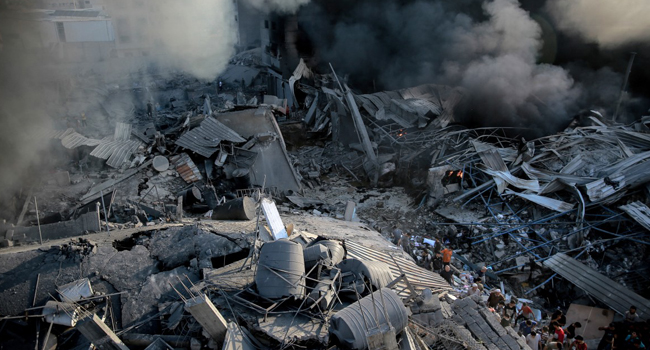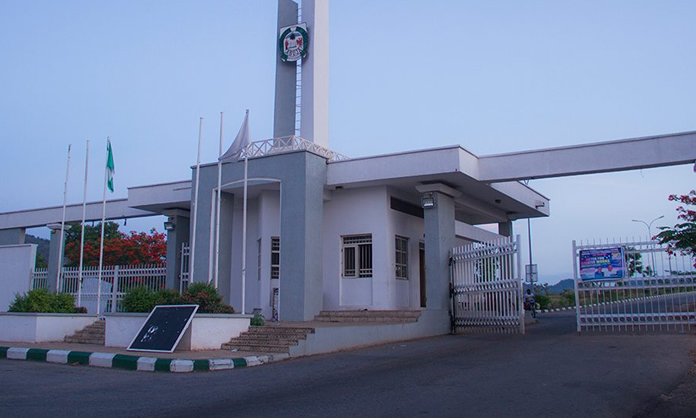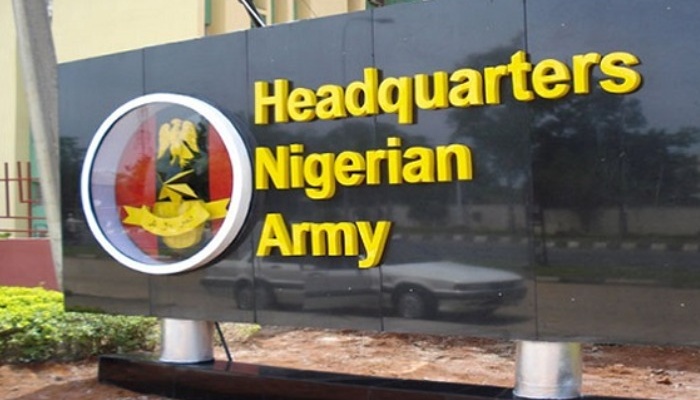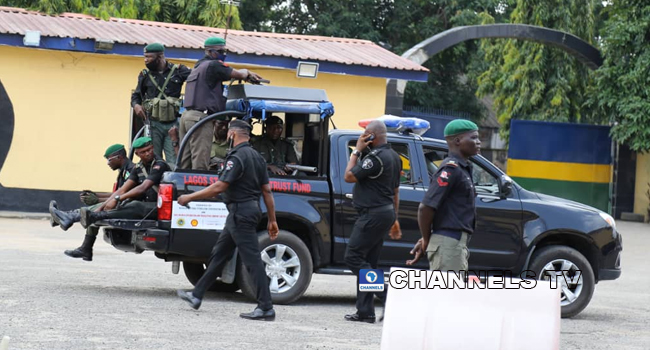A ceasefire between Israel and Hamas could start within days and last through Ramadan, US President Joe Biden said, with Qatar expressing hope on Tuesday that ongoing negotiations would produce a deal before the Muslim fasting month.
As a dire humanitarian crisis unfolds in the war-battered Gaza Strip, the United Nations humanitarian agency OCHA accused Israel of “systematically” blocking aid access to the territory’s north.
In the protracted bid to broker a truce nearly five months into the devastating war, mediators from Egypt, Qatar and the United States have been putting proposals to the parties.
They are seeking a six-week halt to the fighting and the release of Israeli hostages held in Gaza since Hamas’s October 7 attack on southern Israel sparked the war.
“My hope is by next Monday we’ll have a ceasefire,” Biden said.
“We’re close, we’re not done yet.”
The truce deal could include the release of several hundred Palestinian detainees held by Israel, media reports suggest.
Qatari foreign ministry spokesman Majed al-Ansari said Doha was “hopeful, not necessarily optimistic, that we can announce something” before Thursday.
“Till now we don’t have an agreement,” Ansari told a briefing, but “we are going to push for a pause before the beginning of Ramadan” which starts on March 10 or 11, depending on the lunar calendar.
“We are all aiming towards that target, but the situation is still fluid on the ground.”
There has been huge international pressure, including from the United States, for Israel to hold off on sending troops into Rafah, where nearly 1.5 million Palestinian civilians have sought refuge from the fighting.
Israeli Prime Minister Benjamin Netanyahu has stressed that any truce would delay, not prevent, a ground invasion of Rafah in Gaza’s far south, which he said was necessary to achieve “total victory” over Hamas.
– Truce could be ‘renewed’ –
Israel’s military campaign has killed at least 29,878 people in Gaza, mostly women and children, according to the territory’s health ministry.
The Hamas attack that triggered the war resulted in the deaths of around 1,160 people in Israel, mostly civilians, according to an AFP tally based on official figures.
Militants also took about 250 Israeli and foreign hostages, 130 of whom remain in Gaza, including 31 presumed dead, according to Israel.
Biden said an agreement “in principle” was in reach for a temporary truce to last through the Muslim holy month of Ramadan “in order to give us time to get all the hostages out”.
Netanyahu has faced increasing public pressure over the fate of the remaining hostages, and Israeli municipal elections on Tuesday could offer a gauge of the public mood.
A Hamas source, speaking on condition of anonymity due to the sensitivity of the subject, said the proposed 42-day truce could potentially be “renewed”.
Hamas has been pressing for a complete withdrawal of Israeli forces from Gaza — a demand rejected by Netanyahu.
But the Hamas source said the Israeli military may leave “cities and populated areas”, allowing the return of some displaced Palestinians, excluding men between the ages of 18 and 50.
France has said Qatar’s emir, Sheikh Tamim bin Hamad Al-Thani — whose country hosts Hamas’s political leadership and helped broker a one-week truce in November — was due Tuesday in Paris, where negotiators have met earlier this month.
– ‘Nothing but dust’ –
UN chief Antonio Guterres warned that any assault on Rafah, the entry point to Gaza for desperately needed relief supplies, would “put the final nail in the coffin” of aid operations.
Ahead of the threatened ground incursion, the area on Gaza’s border with Egypt has been hit repeatedly by Israeli air strikes.
Abu Khaled Zatmeh, whose nephews were killed in bombardment in Rafah, said the family was “preparing food and getting ready to eat when the strike occurred, and three floors collapsed suddenly”.
“People began pulling out the martyrs, all of whom were my nephews,” he told AFP.
He said there were “no more” basic supplies in the besieged territory, adding that “even if they allow people to return to the north, there are no houses left — nothing but dust”.
The Gaza health ministry said 96 people had been killed in the past 24 hours, with the Hamas government reporting at least 52 Israeli strikes on southern Gaza and other areas.
The Israeli army said troops had “eliminated” several militants inside a tunnel in a raid on the Zeitun neighbourhood of central Gaza.
Meanwhile in northern Gaza, desperate Palestinians have scavenged for food, with many people eating animal fodder and even leaves.
Most aid trucks have been halted, but foreign armies have air dropped supplies including on Tuesday over Rafah and Gaza’s main southern city Khan Yunis.
“I have not eaten for two days,” said Mahmud Khodr, a resident of Jabalia refugee camp in the north, where children roamed with empty pots in search of food.
“There is nothing to eat or drink.”
– ‘Intensification’ in Israel-Lebanon tensions –
OCHA spokesman Jens Laerke said aid convoys headed for northern Gaza “have come under fire and are systematically denied access to people in need”.
The main UN aid agency for Palestinians, UNRWA, said humanitarian relief entering Gaza has halved in February from the previous month, with the latest aid convoy allowed into the north on January 23.
Israeli officials say relief supplies have hit a logjam inside the territory.
Along Israel’s northern border with Lebanon, which has seen near-daily exchanges of fire between Israeli forces and Hamas ally Hezbollah, UN peacekeepers reported “an expansion and intensification of strikes”.
As hostilities continued Tuesday a day after a rare Israeli strike far from the border in eastern Lebanon, UNIFIL urged deescalation to “leave space to a political and diplomatic solution”.
Violence has also surged in the occupied West Bank, where Israeli troops killed three Palestinians in an overnight raid on the Faraa refugee camp.
AFP







